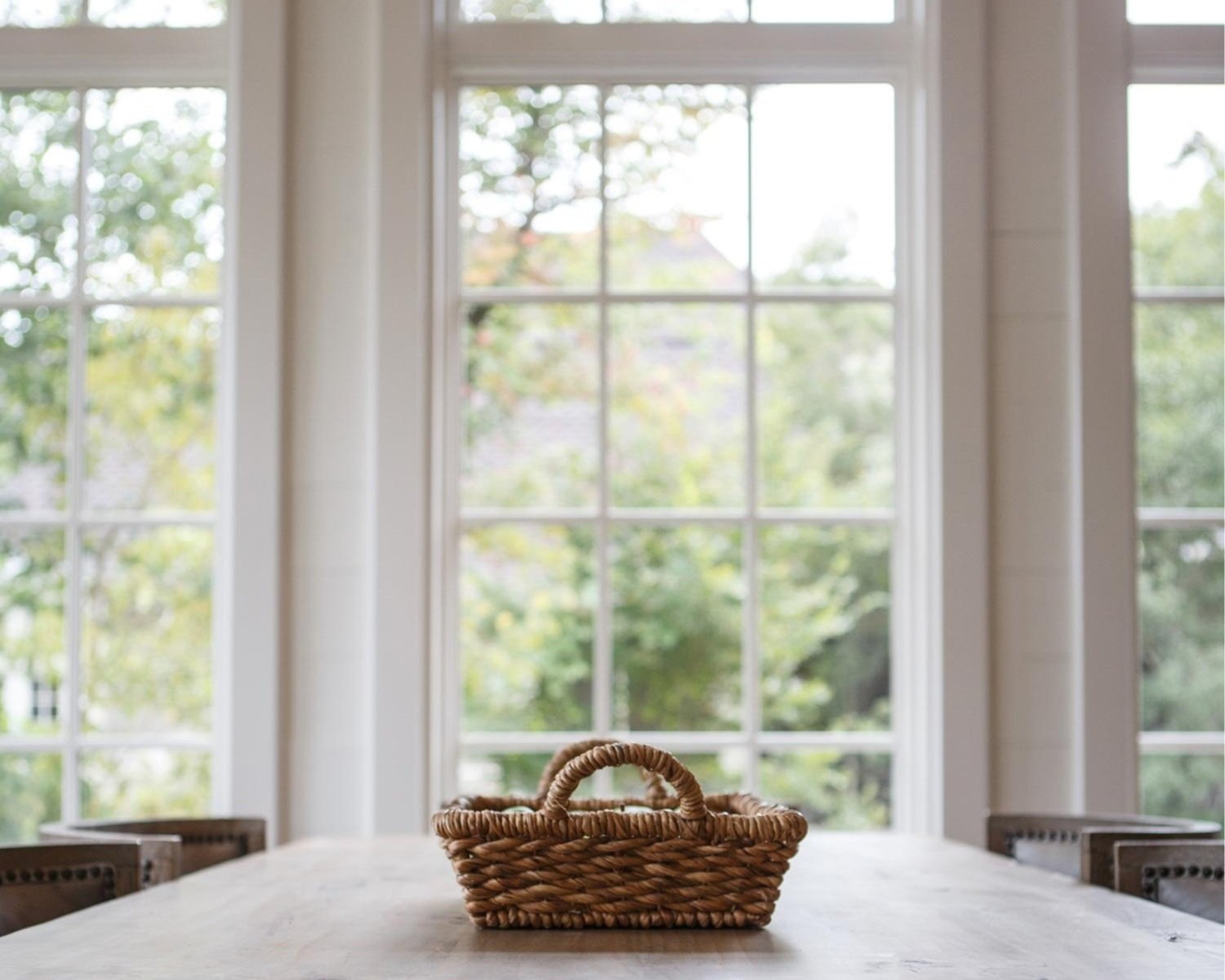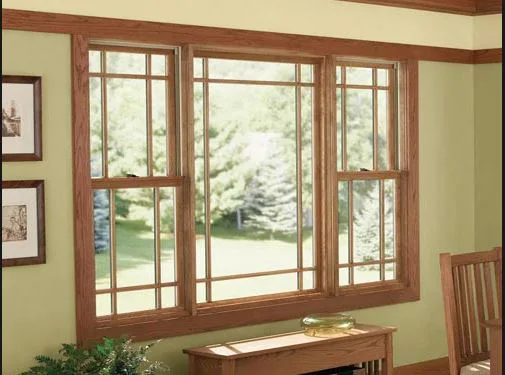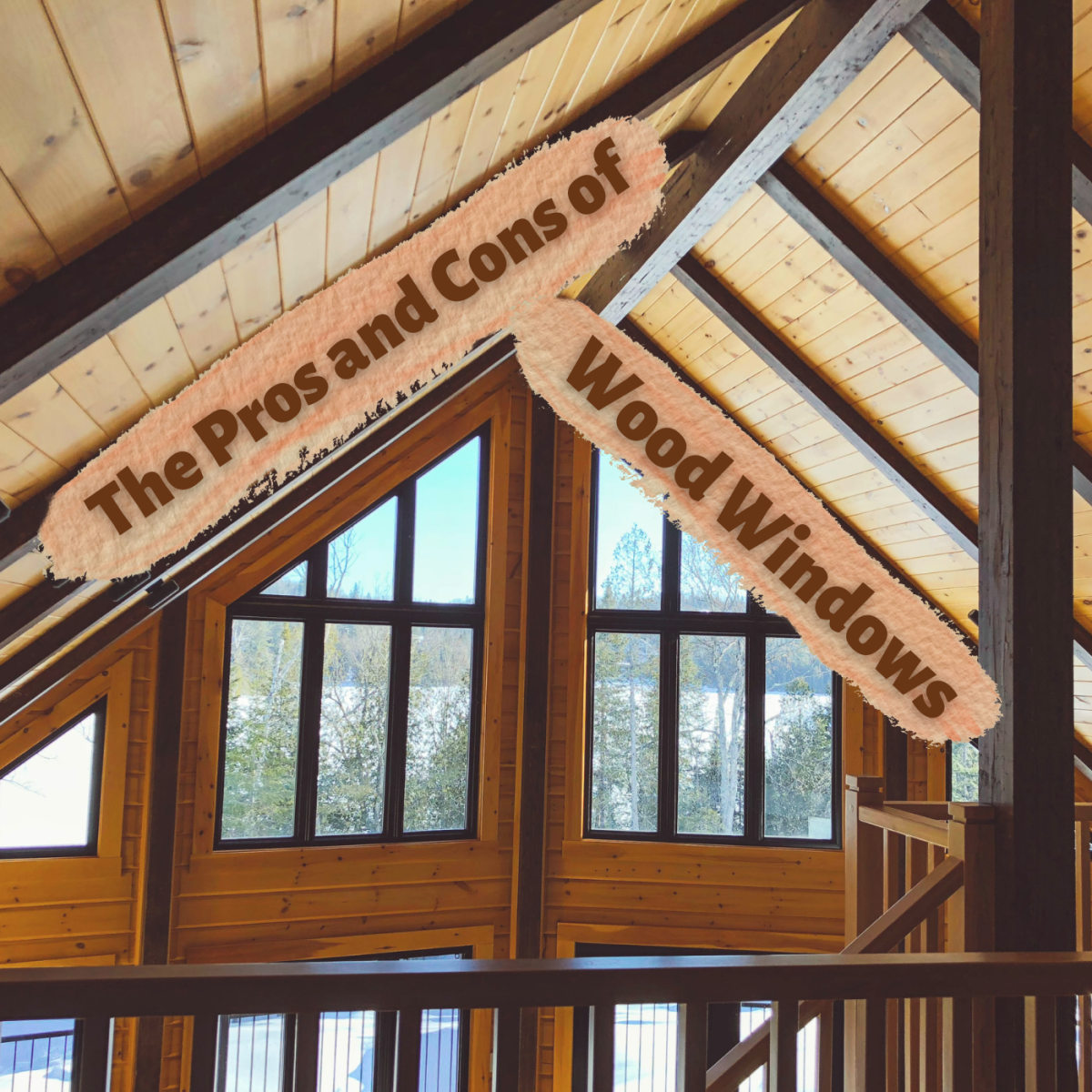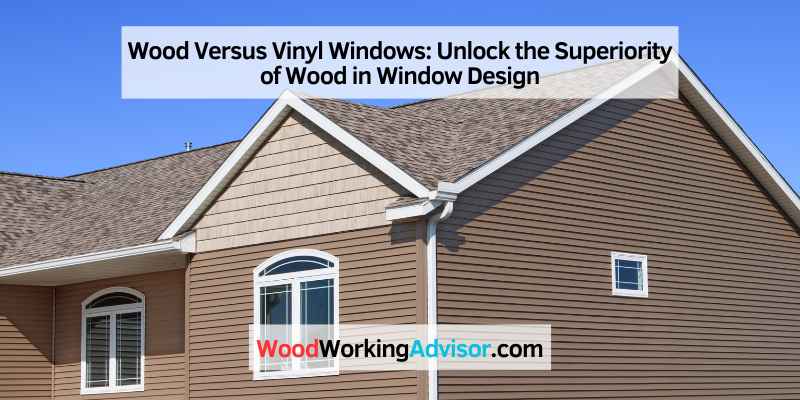Wood and vinyl windows have different aesthetics and maintenance needs. Wood windows offer a traditional look while vinyl windows require less maintenance.
When choosing between wood and vinyl windows, it’s essential to consider factors such as durability, energy efficiency, and cost-effectiveness. Both materials have their pros and cons, so homeowners should weigh these aspects before making a decision. Wood windows offer natural beauty and can be customized to suit various architectural styles.
On the other hand, vinyl windows are low maintenance and energy-efficient. Understanding the differences between wood and vinyl windows can help homeowners make an informed choice for their properties.
The History Of Wood And Vinyl Windows
As we delve into the world of windows, the history of wood and vinyl windows plays a crucial role in understanding their evolution and significance. Both materials have distinct historical backgrounds that have shaped their prominence in the window industry.
Early Use Of Wood In Windows
The use of wood in windows dates back centuries, with early civilizations utilizing this material for its durability and natural insulating properties. In ancient times, wood was readily available and craftsmen would intricately carve and fashion it into window frames, showcasing the artistry and practicality of this material. The versatility and elegance of wood made it a preferred choice in traditional architecture.
Vinyl Windows: A Modern Innovation
The invention of vinyl windows brought a revolution to the window industry in the mid-20th century. Initially used primarily for interior applications, vinyl gradually gained popularity due to its low-maintenance nature and exceptional energy efficiency. This modern innovation in window technology provided homeowners with a cost-effective and durable alternative to traditional wood windows.
Durability And Longevity
Choosing between wood and vinyl windows often comes down to their durability and longevity. Let’s delve into the natural strength of wood and compare the longevity of wood versus vinyl.
Natural Strength Of Wood
Wood windows are known for their natural strength and durability. Wood possesses inherent structural integrity that can withstand various weather conditions.
Longevity Of Wood Versus Vinyl
- Wood windows have a timeless appeal and can last for decades with proper maintenance.
- On the other hand, vinyl windows may have a shorter lifespan compared to wood due to potential warping and fading over time.
- Investing in wood windows can provide a long-term solution that adds value to your home.
Aesthetics And Customization
When it comes to choosing windows for your home, aesthetics and customization play a crucial role in both enhancing the overall design and reflecting your personal style. This is where the choice between wood and vinyl windows becomes significant. Wood windows offer a timeless elegance and beauty, while vinyl windows provide various customization options to match your unique preferences.
Elegance Of Wood Finishes
Wood windows are renowned for their elegance and natural beauty. With their rich grains and warm tones, wood finishes add a touch of sophistication to any architectural style. Whether you prefer a classic, traditional look or a more contemporary aesthetic, wood windows can effortlessly elevate the appearance of your home.
Moreover, wood finishes have a unique ability to create a warm and inviting atmosphere indoors. Their natural charm and warmth add character to any room, making it feel cozy and comfortable. The authenticity of wood finishes also adds a sense of luxury and prestige, enhancing the overall value of your home.
Customization Options For Wood Windows
While wood windows are already elegant on their own, they also offer customization options to further personalize their appearance. Whether you desire a specific paint color, stain, or finish, wood windows can be customized to match your exact specifications.
One of the significant advantages of wood windows is that they can be easily painted or stained to complement your interior and exterior design scheme. This means you have the freedom to choose any color that matches your style or to showcase the natural beauty of the wood grain through a clear finish.
Additionally, wood windows offer the opportunity to incorporate decorative details, such as intricate moldings and muntins, to create a truly unique look. These embellishments can enhance the architecture of your home and add an extra layer of elegance to your windows.
| Benefits of Wood Windows | Benefits of Vinyl Windows |
|---|---|
|
|
Overall, both wood and vinyl windows have their own unique advantages when it comes to aesthetics and customization. While wood windows offer elegance, customization, and a luxurious feel, vinyl windows provide a wide range of color options and require minimal maintenance. It is important to consider your personal preferences, architectural style, and maintenance requirements to make an informed decision about which type of window is best suited for your home.

Credit: www.toulmincabinetry.com
Energy Efficiency And Insulation
Wood has long been recognized for its natural insulation properties, making it an excellent choice for windows when it comes to energy efficiency. Unlike vinyl, which is primarily made from PVC (polyvinyl chloride), a type of plastic that is not known for its insulation benefits, wood windows offer a more sustainable and environmentally-friendly option.
Wood is a natural insulator, meaning it naturally slows down the transfer of heat and cold through the window frame. This helps to maintain a more comfortable indoor temperature by reducing heat loss in the winter and heat gain in the summer. The cellular structure of wood traps air, providing an extra layer of insulation that can contribute to lower energy bills and increased energy efficiency in the long run.
When it comes to energy efficiency, wood windows have several advantages over vinyl. One key factor is the thermal conductivity, which refers to how well a material can conduct heat. Wood has a much lower thermal conductivity compared to vinyl, meaning it is better at insulating against temperature changes.
| Material | Thermal Conductivity (W/mK) |
|---|---|
| Wood | 0.13 |
| Vinyl | 0.14 |
As shown in the table above, wood has a lower thermal conductivity of 0.13 W/mK compared to vinyl’s 0.14 W/mK. While the difference may seem minimal, it can have a significant impact on the overall energy efficiency of a window.
In addition to its natural insulation properties, wood windows can also be further enhanced with additional insulation options such as low-emissivity (low-e) glass. Low-e coatings help to reduce heat transfer and minimize the amount of ultraviolet (UV) and infrared (IR) radiation that passes through the window. This can help to keep the indoor temperature more stable and reduce the need for excessive heating or cooling, leading to lower energy consumption and cost savings.
Overall, when it comes to energy efficiency and insulation, wood windows offer a more eco-friendly and sustainable choice compared to vinyl alternatives. Their natural insulation properties, combined with the option for additional insulation features like low-e glass, make wood windows a top contender for those looking to optimize energy efficiency and reduce their environmental impact.
Maintenance And Environmental Impact
When choosing between wood and vinyl windows, it’s important to consider their maintenance requirements and environmental impact.
Maintaining Wood Windows
Wood windows need periodic painting or staining to protect them from the elements. Regular inspections for rot or damage are essential. Weatherstripping maintenance can improve energy efficiency. Cleaning with mild soap and water helps preserve their appearance.
Environmental Impact Of Wood Versus Vinyl
Wood windows are natural, renewable, and biodegradable. They have a lower carbon footprint and can be repurposed or recycled. Vinyl windows, on the other hand, are less eco-friendly due to their production process and non-recyclability.
Cost Analysis And Value
The decision to invest in new windows for your home is an important one. It not only enhances the aesthetic appeal but also plays a crucial role in energy efficiency and overall comfort. When weighing the options of wood versus vinyl windows, considering the cost analysis and value is essential to make an informed decision.
Initial Costs Of Wood And Vinyl Windows
Wood Windows: Aesthetic Appeal and Higher Initial Cost
Wood windows are known for their classic appeal and natural beauty. However, the initial cost of wood windows is generally higher compared to vinyl windows due to the cost of materials and labor associated with wood window installation.
Vinyl windows are often considered a more budget-friendly option. They require less maintenance and are typically more cost-effective to install, making them a popular choice for homeowners looking to upgrade their windows without breaking the bank.
Long-term Value And Return On Investment
Wood Windows: Timeless Appeal and Potential Maintenance Costs
While wood windows offer timeless beauty, they require regular maintenance to preserve their appearance and structural integrity. The long-term value of wood windows can be affected by ongoing maintenance costs and the potential for refinishing or repairs.
Vinyl windows are known for their low maintenance requirements and energy-efficient properties. They offer long-term value by providing energy savings and durability, ultimately contributing to a positive return on investment over time.
Resilience And Adaptability
Resilience and adaptability are key factors to consider when comparing wood and vinyl windows. Wood windows offer a classic and timeless aesthetic, while vinyl windows are low maintenance and durable. Both options have their own advantages, allowing homeowners to choose the best fit for their specific needs.
Wood and vinyl windows vary in resilience and adaptability, making them notable choices for homeowners. Let’s explore these aspects in more detail.
Wood’s Ability To Withstand Environmental Factors
Wood windows have a natural ability to withstand environmental factors due to their structural strength and durability. The resilience of wood allows it to endure harsh weather conditions such as extreme heat, cold, or high winds, ensuring longevity and reliability for homeowners.
Adaptability In Design And Architecture
Wood windows offer significant adaptability in design and architecture, allowing for customization to match various home styles. Their versatile nature enables unique shapes, sizes, and intricate detailing, providing homeowners with a range of aesthetic options to complement their overall architectural design. Additionally, wood’s adaptability allows for ease of modifications and customization according to specific design preferences, enhancing the overall visual appeal of the property.

Credit: www.signaturewindow.com
Conclusion: Embracing The Superiority Of Wood
Wood windows triumph over vinyl in terms of durability, aesthetics, and eco-friendliness. Let’s delve into why wood windows stand out among the two options.
Evaluating The Overall Benefits
- Classic appeal enhancing home aesthetics
- Reparable and easily customizable
- Long-lasting with proper care
- Natural insulation properties
Why Wood Windows Stand Out
- Timeless elegance for any architectural style
- Unique grain patterns add charm
- Resilient to harsh weather conditions
- Environmentally sustainable choice
Wood windows offer a blend of sophistication and functionality that vinyl cannot match. Make the wise choice with wood windows for enduring beauty.

Credit: dengarden.com
Frequently Asked Questions For Wood Versus Vinyl Windows
What Are The Advantages Of Wood Windows Over Vinyl Windows?
Wood windows offer a timeless and classic look, superior insulation, and the ability to be customized to fit any architectural style. They also have natural insulation properties, making them energy efficient and environmentally friendly.
What Are The Advantages Of Vinyl Windows Over Wood Windows?
Vinyl windows are durable, low maintenance, and more affordable compared to wood windows. They are also resistant to rot, fading, and peeling. Vinyl windows require minimal upkeep and can provide excellent energy efficiency with proper insulation.
Which Type Of Window Is More Energy Efficient, Wood Or Vinyl?
Both wood and vinyl windows can be energy efficient when properly installed and insulated. However, wood windows have natural insulating properties and can provide better thermal performance compared to vinyl windows. Consider factors like climate, window quality, and installation for optimal energy efficiency.
Conclusion
Ultimately, the choice between wood and vinyl windows depends on your preferences and budget. Consider factors like durability, maintenance, and aesthetics before making a decision. Both options have their pros and cons, so weigh them carefully to find the best fit for your home.


